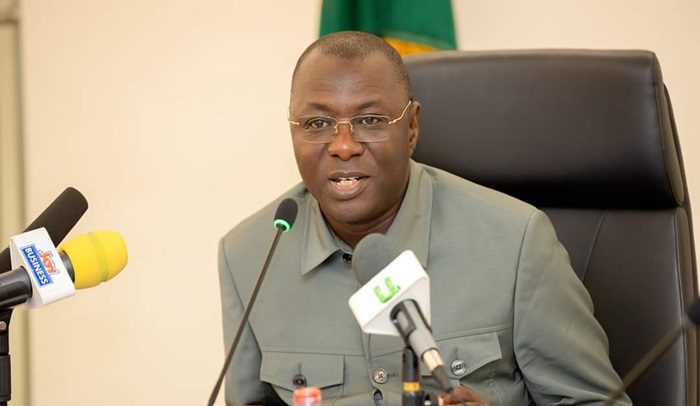Ghana is poised to resume servicing its Eurobond debt in about two weeks, following the successful completion of its $13 billion external debt exchange programme.
This development marks a key step towards the country’s economic recovery and re-entry into global capital markets, after nearly two years of suspended debt repayments triggered by a severe economic crisis.
Debt relief
While repayments to Eurobond holders will soon begin, debt payments to Official Bilateral Creditors have been postponed until 2028.
Through the restructuring, the government has secured $5 billion in debt relief, achieved by reducing the nominal value of its external debt by 37%.
Additional budgetary relief
The debt exchange has successfully reduced the average interest rate on Ghana’s bonded debt from over 8% to below 5%.
This is expected to save the government an estimated $4.3 billion in debt service costs over the duration of its IMF programe, helping to ease pressure on the national budget and reduce the debt-to-GDP ratio.
Re-entry into global capital markets
This debt restructuring signals Ghana’s gradual return to the global financial markets.
Finance Minister Dr. Mohammed Amin Adam emphasized the importance of this step, noting that the country will begin servicing its debts once the exchange is finalized in the coming weeks.
He remarked, “The actual exchange will take place over the next two weeks, and once completed, we can start servicing our debts at reduced levels.”
The minister also highlighted that the restructuring has allowed the government to build buffers for debt repayment through initiatives like the Sinking Fund and increasing revenue-to-GDP to 18%.
Boosting investor confidence
Dr. Adam further explained that completing both domestic and external debt exchanges will enhance the sustainability of Ghana’s debt, potentially leading to a stronger performance of the cedi against major currencies, especially the dollar.
He anticipates positive credit rating upgrades, which could restore investor confidence and attract foreign investment, bringing much-needed foreign exchange into the country.
“With these upgrades, international investors will be more willing to engage with Ghana’s economy, and the influx of foreign investment will help strengthen the currency,” he added.
Economic recovery amid high inflation
In December 2022, Ghana suspended payments on external debts, including Eurobonds, commercial term loans, and bilateral debts, as part of its restructuring efforts.
This emergency measure was intended to prevent a worsening of the country’s financial and social crisis, as the government worked with the IMF on a $3 billion loan-supported program.
Despite the restructuring, Ghanaians continue to face economic challenges, with inflation still over 21% as of last month. However, the IMF projects that the country’s public debt will fall below 80% of GDP by 2024, down from nearly 100% in 2022. The upcoming December elections, featuring Vice-President Dr. Mahamudu Bawumia and former President John Mahama, are expected to spotlight these economic issues.
Global debt restructuring trends
Ghana’s debt restructuring is part of a broader wave of sovereign debt renegotiations spurred by the economic instability caused by the COVID-19 pandemic.
Other countries, including Ukraine, Zambia, and Sri Lanka, have undergone similar processes in recent years.
Ukraine recently completed a restructuring of $20 billion in wartime debt, while Zambia, utilizing the G20-endorsed “common framework” for low-income countries, reached an agreement with its creditors after four years.
Meanwhile, Ethiopia is next in line for debt restructuring under the G20 framework, though its process has faced contention from bondholders due to concerns over transparency.
- Valeria, the amputee giving 1,000 other amputees new life - 25 April 2025
- Moses Baiden calls for unified African tech strategy - 25 April 2025
- Govt will settle debt owed Zoomlion-MPs - 25 April 2025




